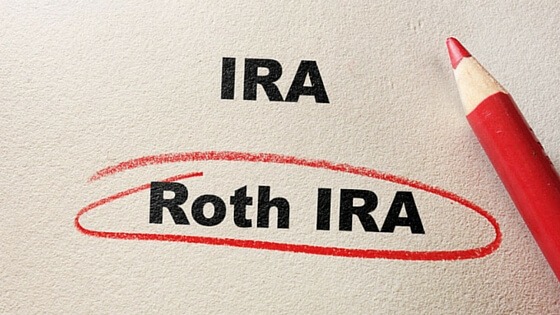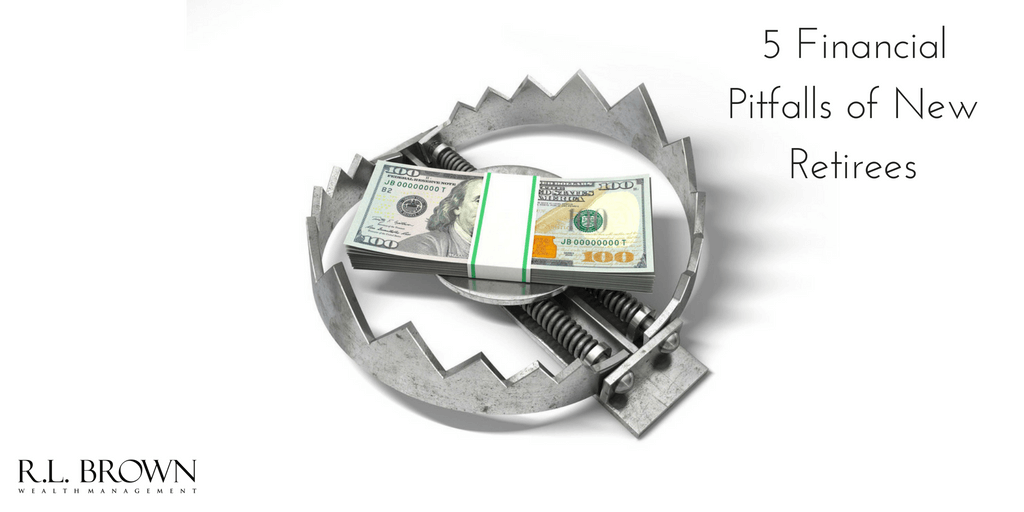You’ve probably heard of the benefits of a Roth IRA conversion. But just to refresh your memory, a Roth is a special retirement account where you pay taxes on money going into your account and then all future withdrawals are tax free. Roth IRAs make the most sense if you anticipate your tax rate to be higher during retirement than your current tax rate.
Perhaps you already have a traditional IRA and are wondering whether you should convert that account into a Roth IRA in order to receive better benefits in retirement. It’s beneficial to discuss with a financial professional whether this strategy would be the best choice for your situation, however the following analysis could also provide you with some valuable insight.
Are you prepared to pay taxes on the conversion?
In a Roth IRA conversion, you move assets from a traditional IRA (or employer-sponsored retirement account) to a Roth IRA via a distribution, which results in an income-tax liability on pretax contributions, as well as investment earnings on pre- and post-tax contributions to the original account. While income limits exist for contributions to Roth IRAs ($5,500 per year and $6,500 for those over 50), people of all income levels can perform a conversion. So when you have other savings vehicles that defer taxes for as long as possible like a traditional IRA and 401(k), then why would you want to do a conversion to a Roth and pay taxes upfront instead? Following are a couple reasons:
1. It will reduce the size of your taxable estate
Since the taxes due upon conversion to a Roth IRA can be significant, paying them upfront will likely reduce the overall size of your taxable estate.
2. There are no required minimum distributions
Traditional IRAs require that you start taking RMDs at age 70½. But if you are in a higher income bracket and don’t need those extra funds, converting to a Roth IRA will allow you to leave those assets in a Roth IRA account that can continue growing on a tax-free basis. When you die, those that inherit your account will be subject to RMDs according to the rules applicable to inherited IRAs, but those distributions will also be free of taxes. If the benefits of a Roth IRA seem appealing, but you still aren’t sure if a conversion would be right for your situation, then take note of the following. If you meet one or more of these criteria, then a Roth conversion could be beneficial.
—Your tax rate is currently low
Since the taxes you pay on a Roth IRA conversion can be significant, it makes sense to perform one when your tax bracket is lower than it might be in future years. This means you may pay much less upfront than you would down the road when you withdraw funds from a traditional IRA or 401(k) if your tax rate increases. In not having to take RMDs later, you may also lower your future annual tax bill.
—You’re financially able to delay withdrawals
Even though you can access your principal in a Roth IRA at any time, it’s best to wait at least five years after the conversion before tapping into those funds. The reason is because the tax-free status of growth and earnings kicks in after that amount of time. If you’re able to hold off on accessing that money for at least five years, then a Roth could be useful for you.
—Paying the tax won’t have a negative impact
If you can pay the taxes on a Roth conversion with outside funds, then this could be another prime reason to consider this strategy. If you must pay the taxes out of your Roth, however, then you’ll decrease the amount of assets that can benefit from tax-free growth and distribution. It’s probably best to only consider this strategy if your current financial situation allows it.
—You wish to pass your Roth IRA assets to a loved one
If you want to avoid RMDs and leave a legacy by passing your assets to your heirs in a tax-free manner, then a Roth could be a great option for you. By paying taxes upon conversion, you’re basically prepaying that fee for your beneficiaries while reducing the size of your estate at the same time.
The bottom line: If you have further questions, work with a financial professional that can analyze your situation and the potential outcomes of a Roth IRA conversion. He or she can help you decide whether it’s the best option for you.







